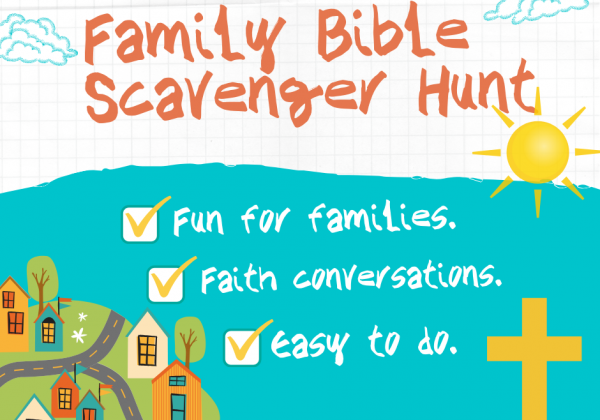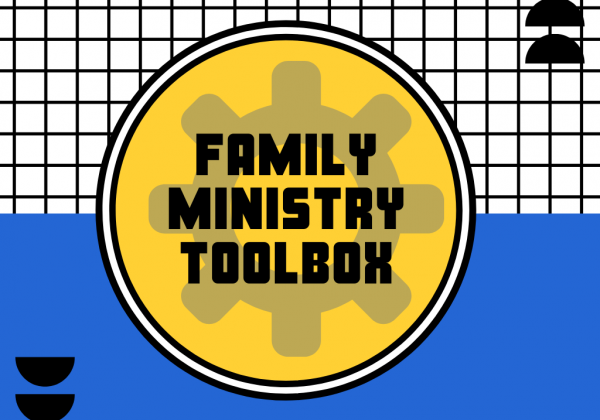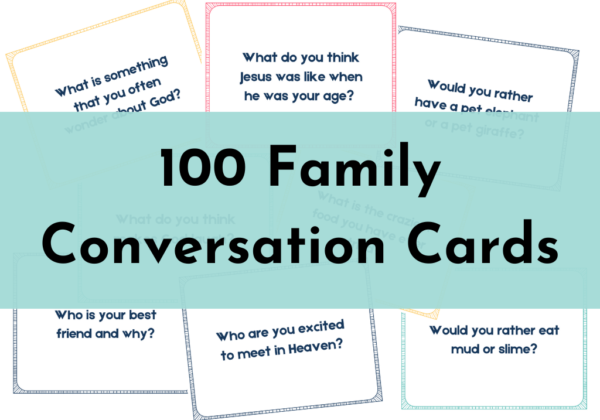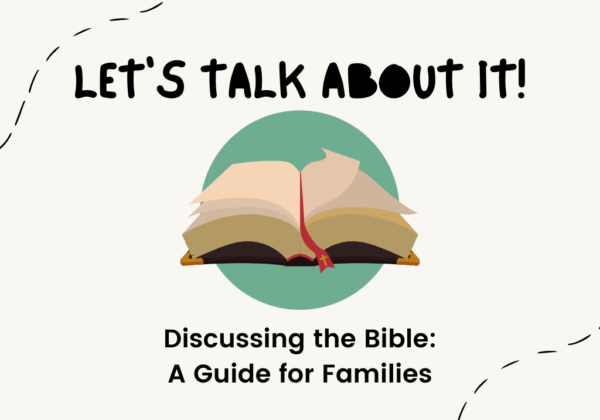
Thanks for joining me at my breakout session all partnering with Millennial parents! Below you’ll find a copy of the notes for the breakout, links to the free downloads I mentioned, and even a few additional resources. Have more questions? Email me at brittany@deeperkidmin.com.
What do today’s families need from the church? Parenting looks different now in light of the digital, diverse, and divided world we live in, and we explored ways to partner with Millennials as they navigate parenting and discipling their kids.
(Click each title below to expand the section and find notes + downloads regarding that topic.)
Opening Disclaimers
Some disclaimers to give us a foundation for this discussion:
- The trends discussed here won’t be true of all Millennials. Generational labels can lead to stereotypes and oversimplification. All Millennials or Baby Boomers are not the same, just as all Southerners, all Catholics or all Black Americans are not the same. Shared experiences and identities should be recognized – and at their best can even be empowering – but this shouldn’t come at the expense of individuality.
- The trends discussed here are not a knock on other generations, intended to speak negatively about other generations, or saying other generations aren’t similar/have similar trends.
- Generational categories are not scientifically defined. It’s wise to think of terms like Gen Z, Millennial, Gen X and Baby Boomer as general reference points instead of scientific facts.
- Millennials are a culmination of trends from previous generations. They didn’t start the trends – good or bad – but they are the results of them.
- Studying generational differences is about understanding, not criticism.
- Placing blame or casting judgment is rarely productive, especially in a ministry context. We can choose to judge the Millennial generation of parents or we can choose to partner with them.
Remember this: It’s hard to serve and lead a generation you roll your eyes at.
Who Are Millennial Parents?
This video from Micah Tyler might be the perception of Millennials as young adults, but in 2024, Millennials are all grown up, with ages ranging from 28-43 years old. And while we may still be rocking man buns and yoga pants, this generation of parents now makes up the majority of kids under 18 years old.
According to Pew Research, there are 72.2 million Millennials in the US. That’s the equivalent of 21.7% of the population and, since 2019, the largest generation in existence. This growing cohort of parents is digitally native, ethnically diverse, late-marrying, and less bound by traditional gender roles than any generation before it. Close to half of the Millennials are now parents.
The trends of this Millennial generation are influencing the way Millennials parent. And should therefore influence the way we as leaders reach, serve, and lead this new generation of parents.
10 Millennial Parent Trends
Let’s take some time to learn a little more about the Millennial parents in our ministries. Below are 10 trends about the Millennial generation of parents gathered from various sources. Read through them and discuss with those around you:
- Which, if any, trends have you seen in the parents in your ministry?
- Which, if any, trends surprise you?
- Which, if any, trends concern you?
Talk about your reactions to these trends and how they might influence the way you partner with parents.
- 82% of Millennial parents work, and today’s parents are busier than ever before, but they are spending more time with their children, and they place high value on togetherness and family time (Source 1).
- Nearly half (46%) of Millennial parents feel burned out. (2) 64% of moms said they believe parenting is more competitive today than it used to be (3).
- 96% of Millennials (in general, not just parents) lack a biblical worldview. Instead they have a worldview known as syncretism, a blending of multiple worldviews in which no single life philosophy is dominant, producing a worldview that is diverse and often self-contradictory (4).
- Only 50% of Millennials think religion is important in raising children (5).
- Millennials are the most racially and ethnically diverse generation in our history. More than four out of 10 Millennials are non-white and more than 40% of Millennials are foreign-born (6).
- Three out of four Millennials lack consistent trust in the words and decisions of Christian pastors. Instead, the most influential voices are their parents, friends, and the online world (6).
- Millennials are getting married later and having children later in life than previous generations (7), but they are much more likely to be child-centric than parents in the 1960s (8).
- In their parenting style, Millennials focus heavily on open communication and emotional intelligence with their kids. 73% of Millennial parents believe their parenting style is better than past generations (2).
- Millennials place a high value on having a mentor, and they consistently express a strong desire to learn from a mentor who listens to them and values their thoughts and opinions too (9).
- 42% of Millennials haven’t gone more than 5 hours without looking at social media, and younger millennials check their phones around 150 times a day, significantly higher than the average of 58 (10).
Key Characteristics of Millennial Parents:
Digital – Millennials are the first generation of digital natives – born into a world where the internet has always existed. Because of this constant access to technology and the internet from birth, Millennials are used to customizing their experiences and products. They crowdsource their decisions and conduct research online by turning to the internet and their community online for advice (11). Often described as impatient and demanding, but they’ve grown up in a world where everything is on demand. 85% believe social media creates unrealistic parenting expectations and 1 in 4 don’t double-check parenting advice from social media (2). Technology and the digital world has also created information overload. Whether they have questions about screen time, co-sleeping, all-natural remedies for -diaper rash or any other issue, Millennials are twice as likely as Boomers to say they look to Google most often for instruction—and half as likely to say they look to books (3).
Diverse – Millennials are diverse in race, parenting styles, and life choices. They are the most ethnically diverse generation (see #5 in the trends above). As Millennials are marrying and having children later, they’re also redesigning the family structure. Many are choosing not to get married but to cohabitate with partners instead. There is an increase in single moms in the Millennial generation. In Millennial families where both parents are present, dads are taking a larger role in parenting. Millennial parents look for ways to be more present and involved with their children, and they let their kids be part of the decision-making process. They prioritize having candid conversations with their children, and open dialogue is an emphasis of Millennial parenting (12). As more women enter the workforce, more children are growing up in households where both parents work. This also means that when Millennials do have kids, they take a harder hit for the mom to stay home and not work because mom’s salary is a greater percentage of the household income. Or they have to pay for childcare, which has far outpaced inflation. In most states, childcare costs more than a year of college at a state university, and sometimes more than a mortgage. Some researchers believe this balance act between salaries and childcare might be one of the reasons why Millennials are having fewer children (5). Because of their diversity, they value flexibility and personalization.
Divided But Peaceful – Millennials are more divided in their religious affiliations than any previous generation. In 2020, nearly as many Millennials were religiously unaffiliated as were Christian. They see religion as less tolerant and more judgmental and hypocritical, which has pushed them away from organized religion. One concerning factor with this: few of the activities Millennials are replacing religion with are geared toward building deep relationships and communal support, so they’re quickly becoming a lonely generation of adults (3). They are uninterested in religion and don’t see it as important in their lives, and they feel strongly that each individual should be able to choose what’s best for them. They may disagree with their peers, but they want people to be able do what they want to do.
Other findings: They want to make an impact on the world and those around them. They have a very altruistic mentality.
Sources:
- “Millennial Parents: 6 Surprising Ways They’re Raising Kids Differently.” KinderCare. Retrieved online January 2024. https://www.kindercare.com/content-hub/articles/2016/may/millennial-moms-dads-6-ways-theyre-raising-kids-differently
- “Millennial Parenting Statistics: Navigating Modern Parenthood in Today’s World.” Lurie Children’s. https://www.luriechildrens.org/en/blog/millennial-parenting-statistics/ January 11, 2024.
- Steinmetz, Katy. “Help My Parents Are Millennials.” Time Magazine. https://time.com/help-my-parents-are-millennials-cover-story/ Accessed January 2024.
- Barna, George. “American Worldview Inventory Release #1: The Worldview Dilemma of American Parents” https://www.arizonachristian.edu/culturalresearchcenter/research/, March 8, 2022.
- Twenge, Jean M. Generations: The Real Differences Between Gen Z, Millennials, Gen X, Boomers, and Silents – and What They Mean for America’s Future. New York: Simon & Schuster, 2023. (Available on Amazon here.)
- Barna, George. “Millennials in America” https://www.arizonachristian.edu/culturalresearchcenter/digital-report-free/ October 2021.
- Barroso, Amanda, Kim Parker, and Jesse Bennett. Pew Research Center “As Millennials Near 40, They’re Approaching Family Life Differently Than Previous Generations” https://www.pewresearch.org/social-trends/2020/05/27/as-millennials-near-40-theyre-approaching-family-life-differently-than-previous-generations/ May 27, 2020.
- Smith, Christian, and Amy Adamczyk. Handing Down the Faith: How Parents Pass Their Religion on to the Next Generation. New York, New York: Oxford University Press, 2021. (Available on Amazon here)
- Rainer, Thom and Jess Rainer. The Millennials: Connecting to America’s Largest Generation. Brentwood, TN: B&H Publishing, 2011. (Available on Amazon here)
- “30+ Average Screen Time Statistics for 2023.” SlickText. https://www.slicktext.com/blog/2023/01/30-key-screen-time-statistics-for-2022-2023/ February 3, 2023.
- Fromm, Jeff and Marissa Vidler. Millennials with Kids: Marketing to This Powerful and Surprisingly Different Generation of Parents. New York, New York: AMACOM Books, 2015. (Available on Amazon here.)
- “7 Things Millennial Parents are Doing Right.” Gerber. https://www.gerberlife.com/learn/millennial-parents Accessed February 2024.
3 C's to Partnering with Millennial Parents
In light of this research and these trends, how can church leaders partner with Millennial parents more effectively? It will require connection, convenience, and customization.
Connection/Community
- Pray. This one really should be a no-brainer in our line of work. Let’s get on our knees and go to battle for the parents and families we serve. Pray specifically and purposely for their needs, and ask God to move in the hearts and minds of the parents you serve. Pray for your role in the discipling of their children, and ask God to help you be a parent cheerleader and an encourager. Bonus: tell parents you are thinking of them and praying for them just as often as you say the same thing to their children. This can be huge for us too – it’s hard to be frustrated with people you’re on your knees in prayer for.
- Knowing the parents in your ministry. The bottom line is if we’re going to support parents in their everyday lives, we have to be part of their daily lives. So start with them. What are the challenges that the parents in your ministry and your community face? One of the best ways to find out about the challenges parents in your ministry face is to spend time with them. Let’s get out of our offices and meet parents for coffee, lunch, or even a walk around the block. Hang out with them. Get to know them. Do life with them. Don’t ‘offer your services.’ Just be their friend. The mentoring and coaching will happen organically and naturally.
- If you are a bi-vocational or volunteer children’s pastor or if your ministry serves several hundred families, then I know your schedule may not allow weekly coffee dates. Another practical alternative is to create a Parent Council. A Parent Council is a group of 8-10 parents of your choosing that meets regularly to provide feedback, guidance, and input on the children’s ministry. Creating this advisory board communicates to parents that it’s OK to talk to you about both the good and the bad. I’d much rather have my Parent Council complain to me about the poor organization at the Preschool Playdate than have all the parents complaining to each other! I set up a Parent Council in my second year of ministry and have loved it ever since. My Parent Council met quarterly, and I emailed them when I had a question about something that I wanted their input on but that didn’t require an entire meeting. A Parent Council reminds parents that it’s more about them than about you, and helps you create buy-in. Remember, Millennials want to contribute, not just consume. Access details about starting your own parent council here.
- Another excellent way to stay in touch with the families in your ministry is through social media platforms like Twitter, Instagram, and especially Facebook. Now more than ever, we can find out about what’s going on in someone’s life without actually having to talk to them. And while the implications of this change are vast, one positive is that we can quickly receive updates on the lives of the families in our ministry. Use Facebook and Instagram to see their family outings, celebrations, grievances, and even to remember parents’ birthdays. Learn more about communicating with Millennial parents as digital natives in chapter 5 of this book!
- Find ways to serve them and step into their world. Parents often serve in our ministries as volunteers, coordinators, and more, so we should look for ways to serve in their worlds too. One year, I offered to help one of my volunteers set up her 3rd-grade classroom before school started, and she later told me that my offer to help made her feel valued and appreciated as a volunteer. Do one of the moms in your ministry lead an exercise class? Join in one day and then take her out for a post-workout meal. Meet a parent at work with a tasty lunch in tow, or serve a parent by picking up their child from preschool that day for an afternoon at the park so mom has some time to herself. No matter what it looks like, let’s commit to stepping out of our church world and into the lives of the parents we serve.
- In his book The Faith of Our Children, Matt Markins reminds us that there’s a direct correlation between time and parents. If we want to see a change in parents discipling their kids, our ministry will need to look a lot more like Jesus’ ministry: relational, discipling, mentoring, training, and equipping. We have to rewire our weekly time. Challenge: do a time audit to evaluate how much time you actually spend investing in relationships with parents.
- Ask their opinions and get their feedback! Here’s a free list of my favorite feedback questions for families as well as some sample surveys for gathering feedback and input.
- Connect parents with other parents. Create communities and remind parents they are not alone. Helping parents connect with others in the same stage of life and a different stage of life helps remedy the lack of competence many parents feel. Whether it’s small groups, Preschool Playdates, family events, Facebook groups, or something else, incorporate ways for parents to build relationships with other parents so they have a whole team of people cheering them on.
- Help families connect with each other. Offer experiences and special events that invite families to create memories together.
Bottom line: Churches that elevate connection and community will do better with Millennials than churches that don’t. So prioritize chances to serve, connect, and grow together.
Convenience
- Millennials are always asking: How can this (service, product, activity, job, etc.) make my life easier and better? For them, convenience is king.
- The key to equipping today’s parents is simplicity, but simple doesn’t have to mean shallow. Simplicity may look like sharing one Bible story video with families, then one or two activities for them to complete at home that use minimal supplies and require little printing. In a viral Tweet from 2020, Scott Irlbacher, a resident in PA stated: “Quit sending millennials things to print at home… We don’t have a printer. [We’ve] been surviving on secretly using our work printers for years.” This Tweet had over 1,000 replies and over 200,000 likes, showing the number of people resonating with the Tweet’s message.
- Providing ideas to parents that require extensive time, thought, and supplies can often have the opposite effect of what you hope for, because parents feel too overwhelmed. I talked with Jessica Bealer, a leading voice in children’s ministry, about equipping parents digitally, and she said, “Parents don’t want to feel like they’re letting their child(ren) down.” So, when parents feel encouraged with simple and easy-to-use resources, they are much more likely to implement them.
- What can you provide or teach that fits into what they’re already doing? Consider what families may already be doing at home ad brainstorm ways to support that. The family is the place for informal discipleship. The church is the place for formal discipleship. This means we don’t have to send home the curated curriculum. We just have to teach the families and parents what discipleship is.
- Think about resources specific to your ministry, such as a monthly calendar of Sunday’s Bible stories that parents can read at home with their children before coming to church. Weekly text messages or social media posts with discussion questions for mealtimes or short examples of how to use various daily routines (bath time, brushing teeth, etc.) for a faith conversation may also be helpful resources. By providing ways that allow kids and families to interact with Bible stories from Sunday mornings throughout the week, ministry leaders essentially enable families to “tie [the stories] as symbols on [their] hands and bind them on [their] foreheads” (Deuteronomy 6:8).
- Use social media and other digital methods to offer simple ideas for faith conversations at home. Many parents feel overwhelmed by the thought of at-home discipleship, let alone the pressures to parent a certain way, feed their children certain foods, and enroll their children in certain activities. When you step into the digital world where parents spend much of their free time, you can provide easy ways for them to develop faith habits within their families. (Learn more about how you can use social media effectively in ministry with this book!)
- Create a realistic calendar. An easy way to create convenience is to evaluate your calendar. Rather than adding commitments with more events and expectations, find activities families are already doing and help them tie those into God’s Word. Are a majority of the children in your ministry part of the school talent show? Use that as a way to talk about spiritual gifts and the talents God has given us. Is the town hosting a glowing lantern event the same night you wanted to host the Easter Egg Hunt? Skip the egg hunt this year, join the community in their lantern-making, and talk about how Jesus is the light of the world. Bottom line: rather than creating a completely separate calendar for your ministry that just becomes one more thing on each family’s to-do list, use the community and school calendars to guide your special events planning.
- It’s also important to know the seasons of busy-ness for the families in your ministry. As much as we’d love it if the families in our church only had our events on their calendar, the reality is they have commitments (a lot of them) outside of our ministries. Be aware of back-to-school and testing seasons, school breaks, and other important holidays. Consider ramping up your digital offerings during these seasons as families are less likely to attend church or may be more on the go than usual. (Explore ways to more effectively use the digital world with Millennial parents with this book!)
- Take the pressure off. As you’re building your library of resources, remind parents that they are available as support, not as expectations. One of the most common statements I hear from parents in my ministry is a feeling of intense pressure that every at-home faith conversation must be profoundly spiritual and sacred. I like to remind parents that faith development at home does not always require in-depth Bible studies; Deuteronomy 6 and 11 show us that the in-between moments of travel, sharing meals, and bedtime and morning routines can all provide time for conversations about God. Offering a variety of ideas that are easy for parents to use at home and communicating their simplicity helps eliminate the pressure some parents may feel. Rather than adding to the anxiety and making parents feel guilty for their constrained time, let’s help them find ways to incorporate moments with God into their schedules. Some of you may think that God should take priority over anything else on the calendar, and I agree with you. But the reality is that families’ schedules don’t always reflect that priority, and if we choose to criticize, judge, or make them feel guilty, we’ll end up pushing families further from the church instead of drawing them closer.
- Simple, easy ideas:
- Spotify playlists to share with families of songs you sing in children’s ministry
- Recommend podcasts (or record your own) for families to listen to in the car
- Biblical Parenting Moment in your email newsletters (think short snippets or videos). This short section provides encouragement and practical ideas that equip parents for faith discipleship at home. Equipping parents to add small faith habits to their family’s daily routines can help ease the pressure many parents feel. When they see how simple it can be to incorporate faith conversations into their daily lives, they’ll be more likely to have them.
- Nightly family prayer at bedtime? Consider sharing prayer prompts for families to use to guide this prayer time.
- Are families heading out to lunch after church? Text them with some discussion questions to talk about while they eat.
- Are parents pulling out after-school snacks? Share ideas for connecting with their kids in these pivotal moments after school.
- Create a Google calendar for your ministry that parents can access and quickly see what you have planned.
Bottom line: Whatever resources you share with Millennial parents must be simple, easy, and convenient.
Customization
- Millennials have a trend/stereotype of entitlement, and they are used to personalizing or customizing everything. But after growing up in an on-demand world, it’s no wonder they come across as demanding.
- Consider what has the most impact in YOUR situation and customize your offerings for parents to the families in your ministry. Each church will serve families in unique ways, and you have to do the work of connecting with families to determine what personalized support they need.
- Also consider how can you customize your offerings for the parents in a way that allows them to choose what works best for their family. Millennials are a diverse generation, and not all families look the same. And remember not all parents will be equally invested – what can you offer the parent that’s all in and what can you offer the parent that’s just dropping their kid off? They’re going to need and want different things. Are the resources you’re offering conducive to a variety of lifestyle paces and family dynamics?
- One customization to consider: Addressing difficult topics. 75% of parents of 5-14-year-olds think the church should address current events, social topics, mental health, or potentially difficult subjects. As digital native kids have more and more access to information at the swipe of a finger, consider equipping parents with resources that address lifestyle and everyday topics from a biblical worldview. Kids are exploring sexual identity, life with technology, and their sense of self at younger and younger ages, leaving most parents feeling lost as to how to navigate these difficult conversations. How can you equip parents to feel confident discussing these issues with their children? Whether you offer seminars or classes (online or in person) or provide digital resources through a parent page on your website, you can equip parents for faith conversations, even the challenging ones. As parents try to navigate the digital world for themselves and their kids, consider offering guidance or training about technology with kids and faith milestones regarding media. This might look like a family technology agreement and habits to help families stay accountable online, or helping parents navigate conversations about online boundaries. (Learn more about how to use the digital world effectively when partnering with parents with this book!)
Bottom line: Customize your parent offerings to your context and give families the ability to customize to their lifestyle.
Action Steps: 1) Talk to your Millennial parents. 2) Evaluate current offerings: How could they be more convenient and customizable for your families?
Looking for family resources that Millennial parents will love? Check out some of these!
-
 detailSelect options This product has multiple variants. The options may be chosen on the product page
detailSelect options This product has multiple variants. The options may be chosen on the product page -
 detailSelect options This product has multiple variants. The options may be chosen on the product page
detailSelect options This product has multiple variants. The options may be chosen on the product page -
 detailSelect options This product has multiple variants. The options may be chosen on the product page
detailSelect options This product has multiple variants. The options may be chosen on the product page -
 detailSelect options This product has multiple variants. The options may be chosen on the product page
detailSelect options This product has multiple variants. The options may be chosen on the product page -
 detailSelect options This product has multiple variants. The options may be chosen on the product page
detailSelect options This product has multiple variants. The options may be chosen on the product page




